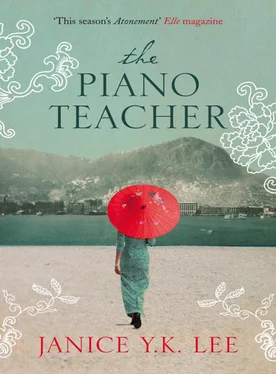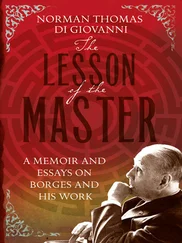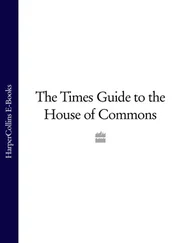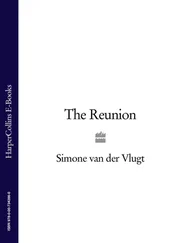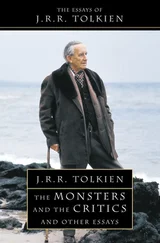‘Aren’t you too old, Manley?’ Trudy asks. ‘Old and decrepit?’
‘That’s the wonderful thing, Trudy,’ he says, with a forced smile. ‘You can’t fire a Volunteer. And at any rate the one here at the Club is convenient.’
‘I’m sending Melody to America,’ Victor Chen says suddenly. ‘I don’t want her to be in any danger.’
Melody smiles uneasily, but says nothing.
‘The government is preparing,’ says Jamie Biggs. ‘They’re storing food in warehouses in Tin Hau and securing British property.’
‘Like the Crown Collection?’ Victor asks. ‘What are they going to do about that? It’s part of the British heritage.’
‘I’m sure all the arrangements have been made,’ says Biggs.
‘The food will go bad before anyone gets it,’ says another man.
‘Cynic,’ says Trudy.
She stands up gracefully and goes towards the ocean. All this talk of war bores her. She thinks it will never happen. They watch her, rapt, as she plunges into the sea and comes up sleek and dripping – her slim body a vertical rebuke to the flatness of the horizon between the sky and sea. She walks up to Will and shakes her wet hair at him. Drops of water fall and sparkle. Then someone asks where the tennis rackets are. The spell is broken.
Over dinner, Trudy declares that she is going to be in charge of uniforms for the Volunteers. ‘And Will can be the model,’ she says, ‘because he’s a perfect male specimen.’
Colin Thorpe, who heads up the American office of a large pharmaceutical company, looks doubtful. ‘Rather small and ugly, isn’t he?’ he says, although this is more a description of himself than of Will.
‘Will!’ Trudy cries. ‘You’ve been insulted! Defend your honour!’
‘I’ve better things to defend,’ he says. And the table falls silent. He is always saying the wrong thing, puncturing the gaiety. ‘Er, sorry,’ he says. But they are already on to the next thing.
Trudy is describing the tailor who is going to make the uniforms. ‘He’s been our family tailor for ages and he can whip out a copy of a Paris dress in two days, one if you beg!’
‘What’s his name?’
‘Haven’t the foggiest,’ she says easily. ‘He’s the Tailor. But I know where the shop is, or my driver does, and we’re the best of friends. Do you fellows prefer orange or a very bright pink as colours?’
They decide on olive green (‘So boring,’ the women sigh) with orange stripes (a concession), and Trudy asks who is to measure the men.
They suggest her.
She accepts (‘Isn’t there something about dressing left?’ she asks innocently), then says that Will can measure in her stead. Trudy’s frivolity, Will has noticed, has boundaries.
Sophie Biggs is trying to interest everyone in moonlight picnics. ‘They’re ever so much fun,’ she says. ‘We take a steamboat out, with row boats, and when we reach the islands we row everyone ashore with the provisions and a guitar or an accordion or something.’ Sophie is a large girl and Will wonders if she is a secret eater because she eats tiny portions when she is out. Now, she is poking her spoon in the vichyssoise.
Trudy sighs. ‘It sounds like so much labour,’ she says. ‘Wouldn’t it just be easier to have a picnic at Repulse Bay?’
Sophie looks at her reproachfully. ‘But it’s not the same,’ she says. ‘It’s the journey.’
Sophie’s husband claims to be in shipping, but Will thinks he’s in Intelligence. When he tells Trudy this, she cries, ‘That big lout? He couldn’t detect his way out of a paper bag!’ But Jamie Biggs is always listening, never talking, and he has a watchful air about him. If he’s that obvious, Will supposes he’s not very good. After Charles Pottinger left last year, someone had told Will that he was Intelligence. He hadn’t been able to believe it. Charles was a big, florid man who drank a lot and seemed the very soul of indiscretion.
Edwina Storch, a large Englishwoman who is the headmistress of the good school in town, has brought her constant companion, Mary Winkle, and they sit at the end of the table, eating quietly, talking to no one but each other. Will has seen them before. They are always around, but never say much.
Over dessert – trifle – Jamie says that all Japanese residents have been sent secret letters about what to do in case of an invasion, and that the Japanese barber chap in the Gloucester Hotel has been spying. The government is about to issue another edict that all wives and children are to be sent away without exception, but only the white British, those of pure European extraction, get passage on the ships. ‘Doesn’t affect me.’ Trudy shrugs, although she holds a British passport. Will knows that if she wanted, she could get on to a boat – her father always knows someone. ‘What would I do in Australia?’ she asks. ‘I don’t like anybody there. Besides, it’s only for pure English – have you ever heard of anything so offensive?’
She changes the subject. ‘What would happen,’ she asks, ‘if two guns were pointed at each other and then the triggers were pulled at the same time? Do you think the two people would get hurt or would the bullets destroy each other?’
There is a lively discussion about this that Trudy is soon bored with. ‘For heaven’s sake!’ she cries. ‘Isn’t there something else we can talk about?’ The group, chastised, turns to yet other subjects. Trudy is a social dictator and not at all benevolent. She tells someone recently arrived from the Congo that she can’t imagine why anyone would go to a Godforsaken place like that when there are perfectly pleasant destinations, like London and Rome. The traveller actually looks chagrined. She tells Sophie Biggs’s husband that he doesn’t appreciate his wife, and then she tells Manley she loathes trifle. Yet, no one takes offence; everyone agrees with her. She is the most amiable rude person ever. People bask in her attention.
At the end of dinner, after coffee and liqueurs, Manley’s houseboy brings in a big bowl of nuts and raisins. Manley pours brandy over it with a flourish and Trudy lights a match and tosses it in. The bowl is ablaze instantly, all blue and white flame. They try to pick out the treats without burning their fingers, a game they call Snapdragon.
Going to the bathroom later, Will glimpses Trudy and Victor talking heatedly in Cantonese in the drawing room. He hesitates, then continues on. When he returns, they are gone and Trudy is already back at the table, telling a bawdy joke.
After, they go to bed. Manley has given them a room next to his and they make love quietly. With Trudy, it is always as if she is drowning – she clutches at him and burrows her face into his shoulder with an intensity she would make fun of if she saw it. Sometimes the shape of her fingers is etched into his skin for hours afterwards. Later, Will wakes up to find Trudy whimpering, her face lumpy and alarming; he sees that her face is wet with tears.
‘What’s wrong?’ he asks.
‘Nothing.’ A reflex.
‘Did Victor upset you?’ he asks.
‘No, no, he wants to … My father …’ She goes back to sleep. When he throws the blanket over her, her shoulders are as cold and limp as water. In the morning, she remembers nothing, and mocks him for his concern.
In the following weeks, the war encroaches – wives and children, the ones who had ignored the previous evacuation, leave on ships bound for Australia, Singapore. Trudy is obliged to make an appearance at the hospitals to prove she is a nurse. She undergoes training, declares herself hopeless, and switches to supplies instead. She finds the stockpiling of goods too amusing. ‘If I had to eat the food they’re storing, I’d shoot myself,’ she says. ‘It’s all bully beef and awful things like that.’
Читать дальше
